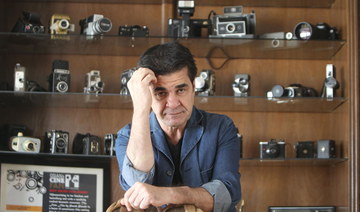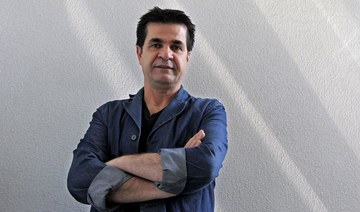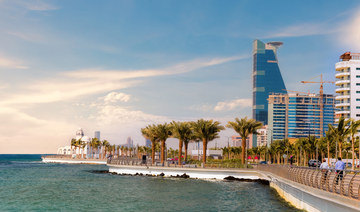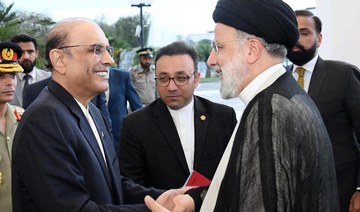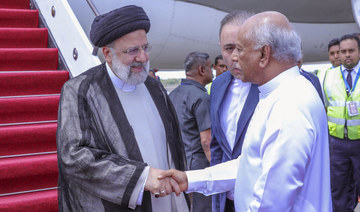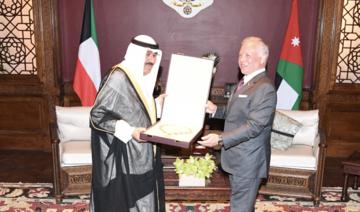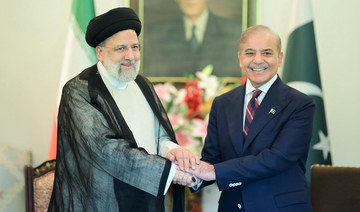PARIS: Acclaimed Iranian filmmaker Jafar Panahi has been released on bail after starting a hunger strike to protest against his almost seven-month detention, supporters said on Friday.
The director had been arrested months before the current anti-regime protests erupted, but his imprisonment became a symbol of the plight of artists speaking out against the authorities.
Panahi has been released from Tehran’s Evin prison “two days after starting his hunger strike for freedom,” the US-based Center for Human Rights in Iran (CHRI) said on Twitter, while Iran’s reformist Shargh newspaper posted an image of Panahi jubilantly embracing a supporter.
His wife Tahereh Saeedi posted a picture on Instagram of Panahi being driven from prison in a vehicle.
The prize-winning director was arrested in July and went on a dry hunger strike on Wednesday to protest his continued detention.
“Mr Panahi was temporarily released from Evin prison with the efforts of his family, respected lawyers, and representatives of the cinema,” Iran’s House of Cinema, which groups together industry professionals, said in a statement.
The announcement that Panahi was going on a dry hunger strike sparked a wave of concern across the world about the director, who has won prizes at all of Europe’s top three film festivals.
“Today, like many people trapped in Iran, I have no choice but to protest against this inhumane behavior with my dearest possession — my life,” Panahi had said in the statement published by his wife.
“I will remain in this state until perhaps my lifeless body is freed from prison,” he said.
Panahi, 62, was arrested on July 11 and had been due to serve a six-year sentence handed down in 2010 after his conviction for “propaganda against the system.”
On October 15, the Supreme Court quashed the conviction and ordered a retrial, raising hopes among his legal team that he could be released, but he remained in prison.
Panahi won a Golden Lion at the Venice Film Festival in 2000 for his film “The Circle.” In 2015, he won the Golden Bear in Berlin for “Taxi Tehran,” and in 2018, he won the best screenplay prize at Cannes for “Three Faces.”
Panahi’s latest film, “No Bears,” which like much of his recent work stars the director himself, was screened at the 2022 Venice Film Festival when the director was already behind bars. It won the Special Jury Prize.
“It is extraordinary, a relief, a total joy. We express our gratitude to all those who mobilized yesterday,” his French distributor, producer Michele Halberstadt, told AFP.
“His next fight is to have the cancelation of his sentence officially recognized. He’s outside, he’s free, and this is already great.”
Panahi’s July arrest came after he attended a court hearing for fellow film director Mohammad Rasoulof, who had been detained a few days earlier.
Rasoulof was released from prison on January 7 after being granted a two-week furlough for health reasons and is still believed to be outside of jail.
Cinema figures have been among the thousands of people arrested by Iran in its crackdown on the protests sparked by the September 16 death in custody of Mahsa Amini, 22, who had been arrested for allegedly violating its strict dress code for women.
Star actor Taraneh Alidoosti, who had published images of herself without wearing the Islamic headscarf, was among those detained, although she was released in early January after being held for almost three weeks.
Iranian director Jafar Panahi released after hunger strike
https://arab.news/yu8n4
Iranian director Jafar Panahi released after hunger strike
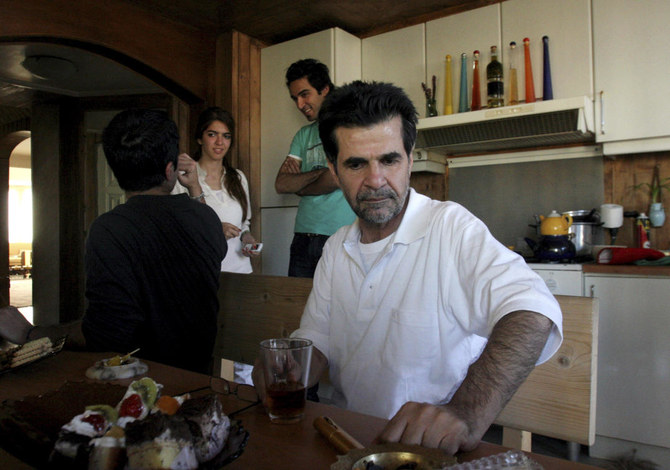
- The director had been arrested months before the current anti-regime protests erupted
- His wife Tahereh Saeedi posted a picture on Instagram of Panahi being driven from prison in a vehicle
Gaza could surpass famine thresholds in six weeks, WFP official says
“We are getting closer by the day to a famine situation,” said Gian Caro Cirri, Geneva director of the World Food Programme (WFP).
“There is reasonable evidence that all three famine thresholds — food insecurity, malnutrition and mortality — will be passed in the next six weeks.”
A UN-backed report published in March said that famine was imminent and likely to occur by May in northern Gaza and could spread across the enclave by July. On Tuesday, a US official said the risk of famine in Gaza, especially in the north, was very high.
Cirri was speaking at the launch of a report by the Global Network Against Food Crises, an alliance of humanitarian and development actors including United Nations agencies, the World Bank, the European Union and the United States.
In its report, the network described the 2024 outlook for the Middle East and Africa as extremely concerning due to the Gaza war and restricted humanitarian access, as well as the risk of the conflict spreading elsewhere in the region.
“As for Gaza, the conflict makes it difficult and sometimes impossible to reach affected people,” Cirri said.
“We need to scale up massively our assistance... But under the current conditions, I’m afraid the situation will further deteriorate.”
The United Nations has long complained of obstacles to getting aid in and distributing it throughout Gaza in the six months since Israel began an aerial and ground offensive against Gaza’s ruling Islamist militant group Hamas.
Israel has denied hindering supplies of humanitarian aid and blames aid agencies for inefficiencies in distribution.
Israel’s military campaign has reduced much of the territory of 2.3 million people to a wasteland with a humanitarian disaster unfolding since Oct. 7, when Hamas ignited war by storming into southern Israel.
Cirri said that the only way to steer clear of famine in Gaza was to ensure immediate and daily deliveries of food supplies.
“They’ve been selling off their belongings to buy food. They are most of the time destitute,” he said.
“And clearly some of them are dying of hunger.”
Jordan King, Kuwait Emir stress on importance of reducing regional tensions, avoid escalation
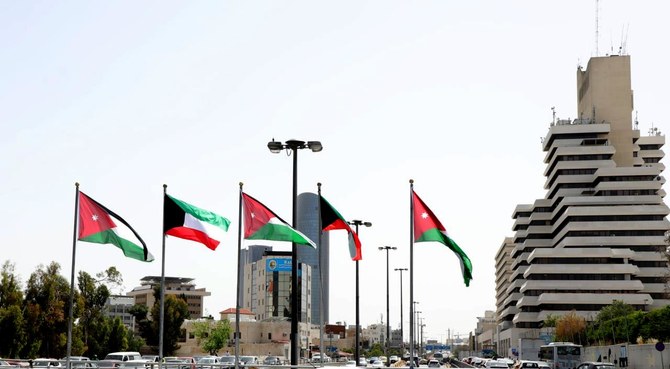
DUBAI: King of Jordan Abdullah II and Emir of Kuwait Sheikh Mishal Al-Ahmad Al-Jaber Al-Sabah stressed on the importance of reducing tensions in the Middle East and avoiding military escalation, according to Petra News Agency.
A joint Jordanian-Kuwaiti statement was issued on Wednesday after the Emir’s two day state visit to the Kingdom.
Both leaders discussed ways to enhance a joint Arab action aimed at confronting emerging regional challenges as well as serving common Arab issues.
The leaders affirmed their support for any steps that ensure the security and stability of the region and stressed the importance of giving priority to dialogue and diplomatic solutions in resolving differences and conflicts.
Their Majesties and Highnesses discussed reaching a just solution to the Palestinian issue and implementing the two-state solution.
The discussions also included talks on investment and tourism, as well as ways to increase trade between Jordan and Kuwait.
Iran cuts Syria presence after strikes blamed on Israel: monitor
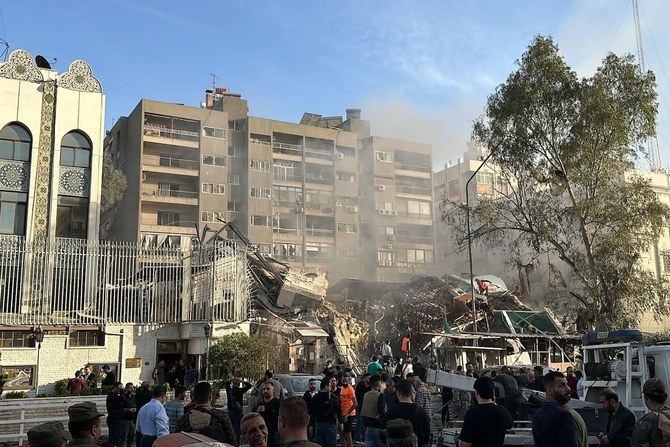
- Iran withdrew its forces from southern Syria, including both Quneitra and Daraa provinces
- Iran has said repeatedly that it has no combat troops in Syria, only officers to provide military advice and training
BEIRUT: Iran has reduced its military footprint in Syria after a succession of strikes blamed on Israel, a source close to Iran-backed militant group Hezbollah and a war monitor said Wednesday.
Iran has provided military support to Syrian government forces through more than a decade of civil war but a series of strikes targeting its commanders in recent months has prompted a reshaping of its presence, the sources said.
“Iran withdrew its forces from southern Syria,” including both Quneitra and Daraa provinces, which abut the Israeli-annexed Golan Heights, the source close to Hezbollah said.
But it still maintains a presence in other parts of the country, the source added.
Recent months have seen a series of strikes on Iranian targets in Syria, widely blamed on Israel, culminating in an April 1 strike that levelled the Iranian consulate in Damascus and killed seven Revolutionary Guards, two of them generals.
That strike prompted Iran to launch a first-ever direct missile and drone attack against Israel on April 13-14 that sent regional tensions spiralling.
But Iran had already begun drawing down its forces after a January 20 strike that killed five Revolutionary Guards in Damascus, including their Syria intelligence chief and his deputy, the source close to Hezbollah said.
Britain-based war monitor, the Syrian Observatory for Human Rights, said Iranian forces had withdrawn from Damascus and southern Syria.
Iran-backed Lebanese and Iraqi fighters had taken their place, Observatory chief Rami Abdel Rahman said.
Iran has said repeatedly that it has no combat troops in Syria, only officers to provide military advice and training.
But the Observatory says as many as 3,000 Iranian military personnel are present in Syria, supported by tens of thousands of Iran-trained fighters from countries including Lebanon, Iraq and Afghanistan.
Abdel Rahman said that many of Iran’s advisers had left Syria over the past six months, although some remained in Aleppo province in the north and in Deir Ezzor province in the east.
Jordan King issues decree to hold parliamentary elections - state TV
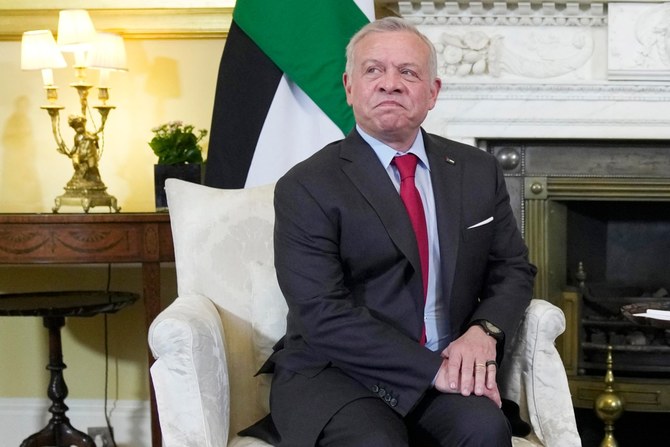
DUBAI: Jordan’s King Abdullah issued a royal decree on Wednesday announcing that a parliamentary election will be held, state TV said.
Under the constitution, the multi-party election is usually held within four months of the end of a four-year term of parliament. The country’s last election, with over 4.6 million eligible voters, was held in November 2020.
An independent election commission decides the exact date.
Iran, Pakistan urge UN Security Council to take action against Israel
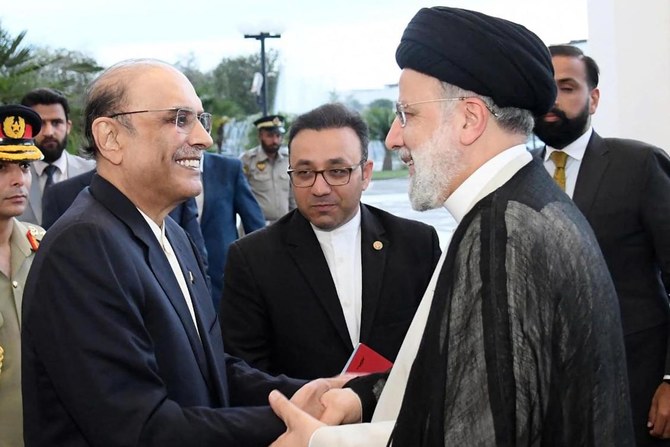
- The joint statement followed a three-day visit to the country by Iranian President Ebrahim Raisi
- Muslim neighbors Iran and Pakistan are seeking to mend ties after unprecedented tit-for-tat military strikes this year
ISLAMABAD: Iran and Pakistan called on the United Nations Security Council in a joint statement issued on Wednesday to take action against Israel, saying it had “illegally” targeted neighboring countries and foreign diplomatic facilities.
The joint statement, released by Pakistan’s foreign ministry, followed a three-day visit to the country by Iranian President Ebrahim Raisi at a time of heightened tensions in the Middle East.
Explosions were heard last Friday over the Iranian city of Isfahan in what sources said was an Israeli attack. However, Tehran played down the incident and said it had no plans for retaliation.
“Recognizing that the irresponsible act of the Israeli regime forces was a major escalation in an already volatile region, both sides called on the UN Security Council to prevent the Israeli regime from its adventurism in the region and its illegal acts attacking its neighbors...,” Iran and Pakistan said in their joint statement.
Muslim neighbors Iran and Pakistan are seeking to mend ties after unprecedented tit-for-tat military strikes this year.
Raisi, who wrapped up his visit and flew on to Sri Lanka on Wednesday, vowed to boost trade between Iran and Pakistan to $10 billion a year.
During his visit to Pakistan, Raisi was quoted by Iran’s official IRNA news agency as saying any further Israeli attack on Iranian territory
could radically change the dynamics and result in there being nothing left of the “Zionist regime.”
On April 13, Tehran launched a barrage of missiles and drones at Israel in what it said was retaliation for Israel’s suspected deadly strike on the Iranian embassy compound in Damascus on April 1, but almost all were shot down.
Pakistan has previously called for de-escalation by “all parties.”
Iran and Pakistan vowed during Raisi’s visit to boost trade and energy cooperation, including on a major gas pipeline deal that has faced delays due to geopolitical issues and international sanctions.



